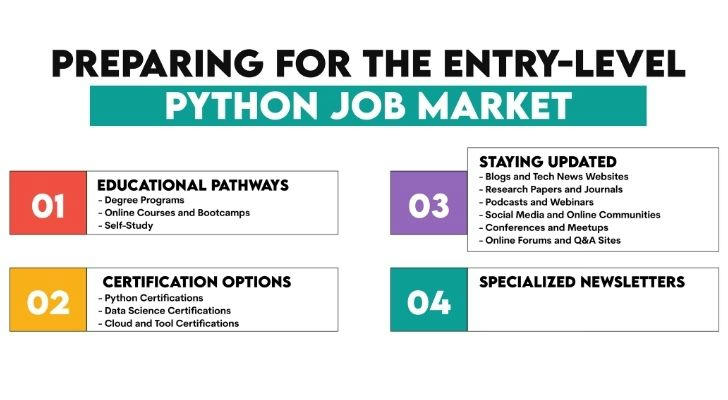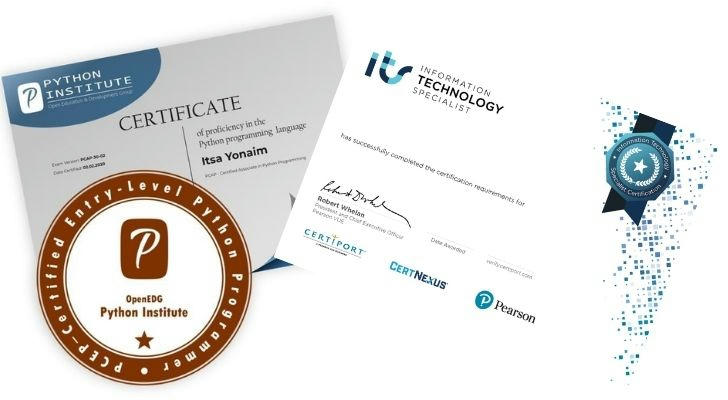Overcoming Self-Doubt: How to Build Confidence and Take Charge of Your Career Growth
Self-doubt can be one of the biggest obstacles to career growth. It can keep you from taking risks, seeking opportunities, or even realizing your full potential. However, self-doubt is not permanent, and with the right strategies, you can build your confidence and take charge of your career. In this article, we’ll explore practical ways to overcome self-doubt and create a mindset that empowers you to grow professionally. Let’s look at some real-life examples of how others have tackled self-doubt and taken control of their careers.

Step 1: Acknowledge Your Self-Doubt
The first step to overcoming self-doubt is recognizing that it exists. Many people experience self-doubt at some point in their careers, whether they’re just starting out or have years of experience. It’s important to understand that self-doubt is normal, but it should not control your decisions.
Pro Tip: Keep track of moments when you feel self-doubt. Is it during meetings? When you’re asked to take on new responsibilities? Recognizing these moments allows you to address them directly.
Case Study: Mark’s Wake-Up Call
Mark, a young lawyer, often doubted his abilities when handling complex cases. Every time he was asked to lead a client meeting, he would freeze, worried about being judged. One day, his mentor told him, “You were hired because you’re qualified. Trust in your skills.” This acknowledgment of his self-doubt helped Mark understand that it was a normal feeling but shouldn’t stop him from taking action.

Step 2: Shift Your Focus to Your Strengths
To overcome self-doubt, it’s crucial to focus on your strengths and accomplishments rather than your weaknesses. Self-doubt often arises when we focus too much on what we lack. Instead, take time to reflect on what you’ve already achieved and the skills that set you apart.
Pro Tip: Keep a “success journal” where you write down your achievements, positive feedback, and moments when you’ve overcome challenges. This can serve as a reminder of your capabilities when self-doubt creeps in.
Case Study: Sarah’s Confidence Boost
Sarah, a graphic designer, had doubts about her ability to lead design projects. However, she decided to take a step back and list her past successes: clients who loved her designs, positive reviews from her manager, and the recognition she received for innovative projects. This shift in focus made her realize that she was more than capable of handling leadership roles, and she soon began volunteering to lead projects within her team.

Step 3: Set Small, Achievable Goals
Breaking down your career goals into small, manageable steps can help you gain momentum and boost your confidence. Large goals can feel overwhelming, but when broken into smaller tasks, they seem more attainable, making you more likely to take action.
Pro Tip: Start by setting one small, achievable goal that you can complete within the next week. Achieving this goal will build your confidence and set you up for success with larger objectives.
Case Study: John’s Steady Progress
John, an aspiring entrepreneur, had dreams of starting his own business, but he was paralyzed by self-doubt. He was afraid of failure and worried about the unknowns. Instead of diving into a full-fledged business launch, he set a small goal: research his target market for one hour each day for a week. By the end of the week, John had valuable insights into his market, and his confidence grew. This small step led to bigger actions, and he eventually launched his business.

Step 4: Surround Yourself with Positive Influences
The people you surround yourself with can greatly impact your confidence. Negative or unsupportive colleagues or friends can amplify self-doubt, while positive influences can help you stay motivated and see your value.
Pro Tip: Seek out mentors, supportive colleagues, or friends who encourage your growth and challenge you to be better. Their feedback and support can be invaluable in moments of self-doubt.
Case Study: Laura’s Supportive Network
Laura, an HR professional, struggled with confidence when she was asked to present at company-wide meetings. She feared speaking in front of large groups. However, her mentor, who had been in the industry for years, helped her prepare and reassured her of her abilities. With her mentor’s encouragement, Laura not only nailed the presentation but also grew more confident in taking on new public speaking opportunities within the company.

Step 5: Embrace Failure as a Learning Opportunity
One of the reasons self-doubt persists is the fear of failure. However, failure isn’t the end—it’s a valuable opportunity for growth. Every mistake you make is a lesson that brings you closer to your career goals.
Pro Tip: When you encounter failure, reflect on what you can learn from the experience. By viewing failure through a positive lens, you’ll begin to approach challenges with more confidence and less fear.
Case Study: Tim’s Resilience
Tim, a sales manager, faced a major setback when his team didn’t meet their quarterly goals. He felt like a failure and doubted his ability to lead. Instead of letting the setback define him, Tim took it as an opportunity to learn. He worked with his team to identify what went wrong, improved their sales strategies, and led them to success in the next quarter. This experience not only helped him grow as a manager but also taught him that setbacks are part of the journey.
Step 6: Celebrate Your Wins, Big and Small
Acknowledge your successes, no matter how small they may seem. Celebrating your achievements reinforces positive behavior and reminds you of your capabilities.
Pro Tip: After achieving a goal, take a moment to celebrate. It could be as simple as treating yourself to something you enjoy or sharing your success with a colleague or mentor.
Case Study: Emily’s Celebration of Success
Emily, a marketing executive, worked tirelessly to complete a challenging project. When the project was completed successfully, she celebrated by treating herself to a weekend getaway. This celebration reminded her of her hard work and gave her the confidence to take on the next big project.

Conclusion
Overcoming self-doubt is a process that requires self-awareness, action, and patience. By acknowledging your doubts, focusing on your strengths, setting small goals, surrounding yourself with positive influences, embracing failure as a lesson, and celebrating your wins, you can build your confidence and take charge of your career growth.
Just like Mark, Sarah, John, Laura, Tim, and Emily, you have the power to conquer self-doubt and create a successful, fulfilling career. The key is to keep moving forward, even when you don’t feel 100% confident—your growth and success are within reach.
